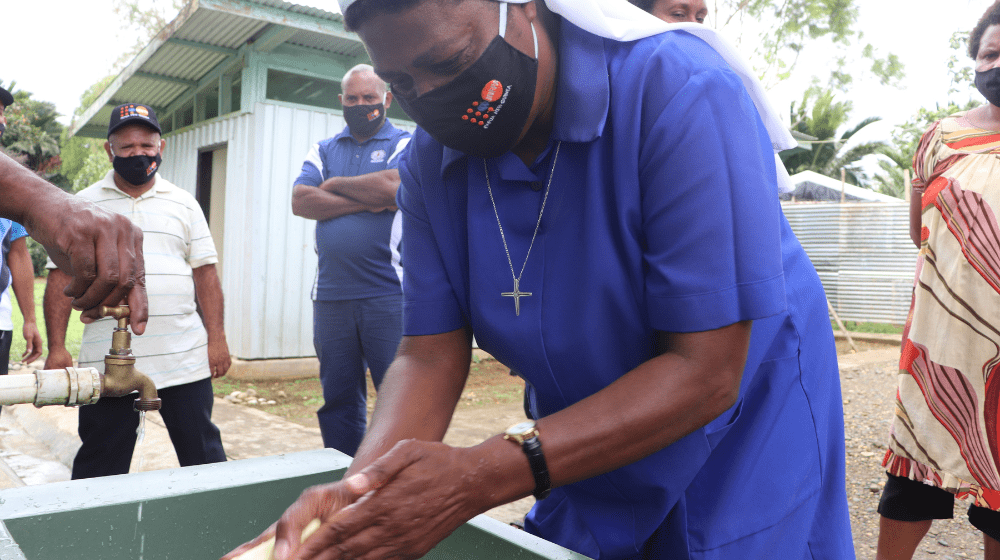According to a new survey, only 1 in 5 Papua New Guineans have access to safe drinking water.
The Socio-Demographic and Economic Survey, conducted by the National Statistical Office with support from UNFPA, asked 5,000 households about their water sources and sanitation facilities. The results showed mixed progress towards improving sanitation and hygiene conditions, with gradual gains but many families still left behind.
The results showed more families are using improved water sources for their drinking water, although about 1 in 4 are using unprotected springs and only 1 in 5 people are accessing water that is safe to drink. The proportion of households practicing open defecation has decreased from 16.7% in 2018, to 13.6% in 2022. Despite this improvement, only 8.2% of the population are using safely managed sanitation services.
“There are promising steps forward in sanitation and hygiene conditions, but many Papua New Guineans are still lacking the basics,” said UNFPA Country Representative Marielle Sander. “Unfortunately, women and girls are likely to be most affected by the lack of hygienic sanitation facilities, as this affects how they can manage their hygiene during their period.”
UNFPA provides hygiene supplies to women and girls affected by humanitarian emergencies. However, it is important to ensure that all women and girls have access to safe and clean sanitation facilities.
The survey found that 35% of households have no handwashing facility. This is particularly concerning as the country emerges from the COVID-19 pandemic, as frequent handwashing has been consistently promoted over the past three years.
“We know that handwshing with soap is one of our most basic infection prevention methods,” said Ms Sander. “Having no handwashing facility available poses a significant health risk to individuals and to communities.”
Sustainable Development Goal 6 calls for ensuring availability and sustainable management of water and sanitation for all by 2030.
“The results of this survey are a wake up call,” said Ms Sander. “We need to accelerate progress to achieve the sustainable development goals and, in particular, to ensure we are delivering these promises to the last mile and to our most vulnerable.”
About the Socio-Demographic and Economic Survey
The Socio-Demographic and Economic Survey asked 5,000 households questions on demographics, education, employment, sanitation, and energy sources. The results provide updated statistics of the livelihoods of Papua New Guinean households and key indicators on progress towards the Sustainable Development Goals and PNG’s Vision 2050. The full report, including analysis of the technology enables faster data collection and reduces errors, leading to more efficient enumeration and processing for large, national data sets.
With support from the Australian Government, UNFPA supported the National Statistical Office with tablets and is committed to ongoing capacity building for the NSO on industry-leading REDATAM data processing software. In 2023, UNFPA and NSO are completing a series of data literacy workshops across all provinces to encourage utilisation of updated data sets in planning. Workshops have been completed in Western Highlands, Jiwaka, East Sepik, West Sepik, and Manus.


